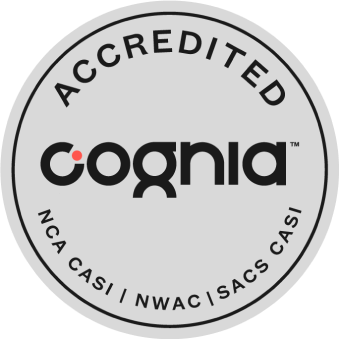Recipients of BASIS Charter Schools' 2022 Senior Project Founders' Prize Announced
Congratulations are in order for this year’s BASIS Charter Schools Senior Project Founders’ Prize winners. The prize is a $10,000 scholarship towards tuition at a four-year university – and this year’s winners, along with a project abstract, are listed below.
Learn more about this Senior Project Founders’ Prize.
Ella W.

#1 Choice Best Original Research
Title of Project: Assessing Light-Induced Fading of Colored Art Objects via Novel Digital Visualization Techniques
Project Abstract: Colored art objects represent invaluable remnants of cultural heritage and history that are vulnerable to irrevocable damage caused by light-induced fading if not exhibited carefully. Accelerated light-fading information can be obtained from microfading tests, but such numerical data is often inaccessible and difficult to communicate in an interpretable manner. This work demonstrates a successful method for digitally simulating the fading of art objects and explores relevant insights that can be extracted. Novel ColorMap images were constructed to identify light-sensitive areas and convey shifts in the hue, value, and chroma of different colors in an artwork, allowing conservators to target critical color regions as well as implement restorative measures. Moreover, we proposed an new approach to accurately predict the fading process of untested art objects using known microfading data, thus expanding microfading applications to advise appropriate exhibition policies even in the absence of testing devices. Developing interpretable visualizations of the complex color changes that occur during fading better communicates the precise nature and severity of fading risks as well as the unique fading trajectories of different pigments. The fading simulations produced in this study may enable conservators to engage in more informed discussions and implement effective strategies for monitoring and preserving artworks.
Ella W graduated from BASIS Chandler and will be attending Massachusetts Institute of Technology (MIT) in the fall.
Lyndon K.
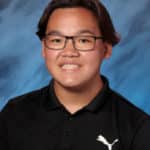
#1 Choice Greatest Influencer
Title of Project: Exploring the Viability of Water Desalination via Capacitive Deionization
Project Abstract: “Water, water, everywhere, And all the boards did shrink; Water, water, everywhere, Nor any drop to drink.” – Samuel Taylor Coleridge, The Rime of the Ancient Mariner. Only 3% of the water on Earth is freshwater. Despite this daunting statistic, freshwater is used in many manufacturing processes, but more importantly, water is needed for life to prosper. As more and more fresh water is being consumed, current methods to harvest seawater by desalination are being explored. Currently, the main method to desalinate water is through reverse osmosis or distillation; however, these methods are both financially and energy costly. So, new efficient, economical, and energy-sound methods are being explored. Throughout my senior project, I will be working with Arizona Project WET to educate youth around Arizona about water in the Earth’s System and Arizona’s water resources by guiding hands-on learning activities. I will also be researching a novel method of desalination that takes advantage of ion electrosorption at the surface of a pair of electrically charged electrodes, called capacitive desalination. By studying the method and its parameters, I am working to construct my own model. The long-term goal is to build a desalination device that is energy efficient, while simultaneously economically viable, so that people, regardless of their geographical location and income level, can have access to clean water.
Lyndon graduated from BASIS Goodyear and will be attending Cal Poly State University in the fall.
Katherine W.
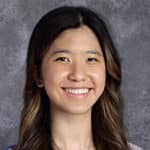
#1 Choice Rooted and Route-d
Title of Project: Preservation of the Honeybee Species: Understanding Olfaction from the Antennal Lobe.
Project Abstract: Many animals use self-generated energy to sample their environment, a practice called active sensing. Echolocation in bats and dolphins is an example of this phenomenon. Although there is an extensive amount of research on active sensing in mammals, the information on how insects like honeybees interact with their surroundings isn’t as well understood. However, because honeybees pollinate a vast number of crops across the world, not only is our agriculture dependent on them, but also our economy. With over $15 billion at stake along with priceless pollination services, protecting the honeybee species is vital for the future of farming and industry. To preserve these invaluable creatures, understanding them is the first step. By studying honeybee neural responses from the antennal lobe inside the brain, we can better comprehend how their sensory mechanisms operate. This will pave a path for safer handling and potential manipulation of honeybees for prolongation of the species. At the Arizona State University lab, we can simulate a natural environment by conducting in-person experiments using different odor concentrations and airspeeds, then noting the honeybee’s resulting antennae patterns to the varying stimuli. After examining the qualitative reactions and analyzing the quantitative action potential data, we can determine associations between distinct parts of the brain and how exactly honeybees utilize their antennae to interact with their environment. As a result, we can unveil the significance and specific mechanics of the honeybee sensory system. In turn, we can maintain our reliant usage of the beneficial products and byproducts of honeybees.
Katherine graduated from BASIS Chandler and will be attending the University of Pennsylvania in the fall.
Abigail H.
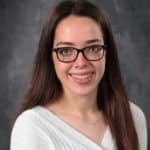
#1 Choice Greatest Initiative
Title of Project: A Predictive Traffic Safety Analysis of the Proposed Diverging Diamond Interchange at the Intersection of Loop 1604.
Project Abstract/Description: In the world of intersection and interchange design, there are a few unique alternatives to the typical four-way stop or traffic light. One such alternate interchange is the diverging diamond interchange (DDI), which is praised for its ability to handle large left-turn volumes of traffic and reduce congestion. The Texas Department of Transportation has proposed the construction of a DDI at the interchange at Loop 1604 @ FM 2696 (Blanco Rd) in San Antonio and conducted an extensive analysis of the improvements the interchange will make to traffic congestion in the area. However, current research lacks a significant safety evaluation and the changes to crash statistics the new interchange might create at this location. By analyzing past traffic crash statistics and applying crash modification factors, a numerical value representative of the changes in crash frequency and type, I predicted the expected crash frequencies of the new DDI. Working with TxDOT engineers, I used comparative analysis to assess the safety benefits or risks of the proposed design change and determine if it is an appropriate change from the perspective of safety improvement. With my findings, I hoped to support or counter the decision to construct a DDI at this interchange and other proposed DDI locations across the country.
Abigail graduated from BASIS San Antonio Shavano and will be attending Texas A&M University in the fall.
For more great student work, check out our recap of the Charters at the Capitol event.





